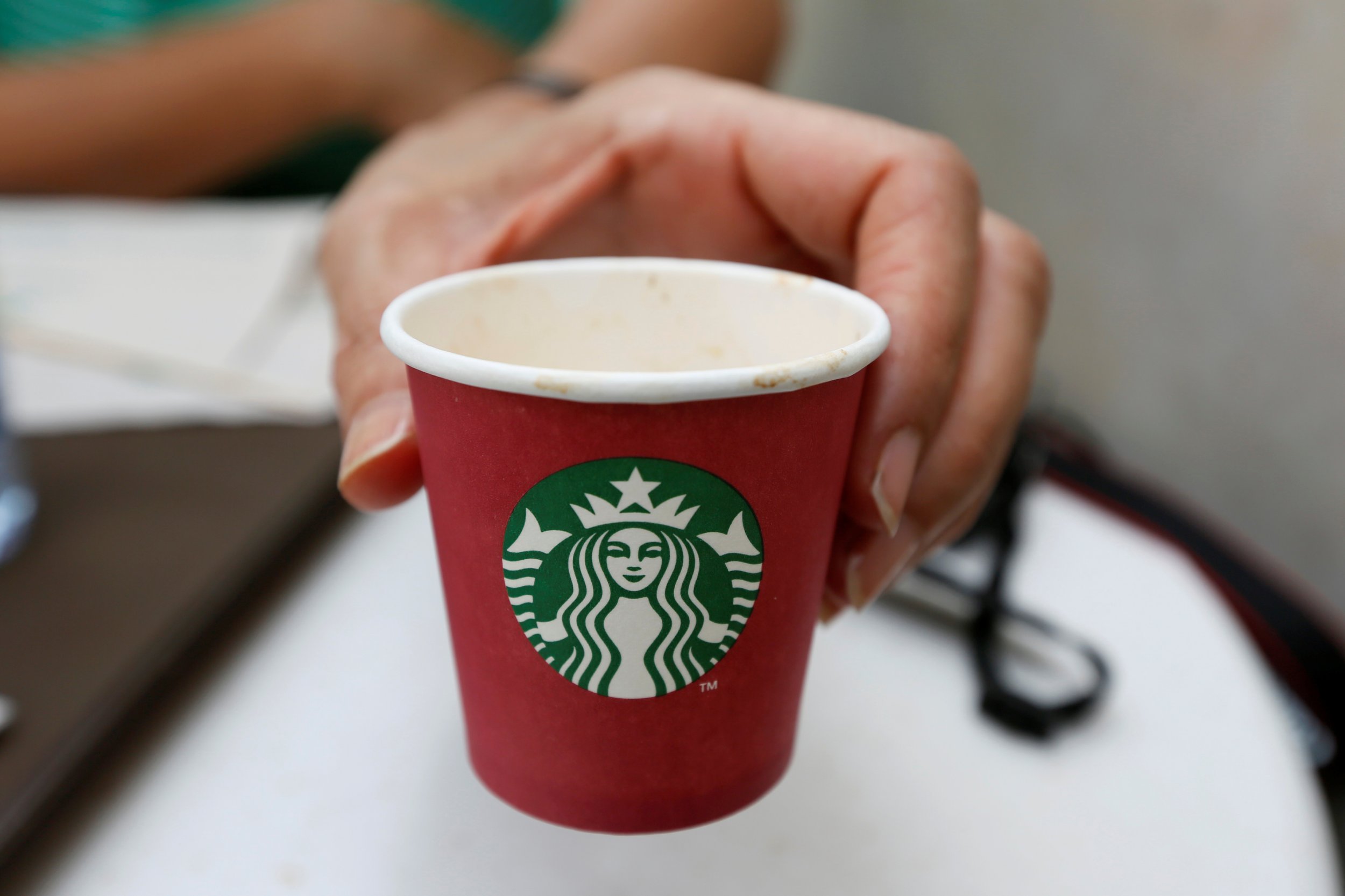
This article originally was published on the Motley Fool.
Since Donald Trump became president, a number of CEOs have stepped into the spotlight to speak against (or in favor of) his policies. Having a political opinion can both help and hurt a brand. Those who agree with a company's opinion might shop there more, while people who feel the other way will also vote with their wallets.
Starbucks, lead by CEO Howard Schultz, has never been a company to stay on the sidelines. That makes it not at all surprising that the global coffee giant has taken an aggressive stand against Trump's efforts to temporarily ban people from seven predominantly Muslim countries from entering the United States, including refugees fleeing wars.
In the immediate aftermath of the Trump administration's efforts, Schultz sent a letter to his employees laying out what the company plans to do, saying he hears "the alarm you all are sounding that the civility and human rights we have all taken for granted for so long are under attack."
The company's efforts include working to support the company's employees in or from affected countries. Most notably, Schultz took a direct shot at the president, pledging to hire 10,000 refugees at its stores around the world and in the United States over five years.
What does that pledge mean?
"We have a long history of hiring young people looking for opportunities and a pathway to a new life around the world," wrote Schultz. "This is why we are doubling down on this commitment by working with our equity market employees as well as joint venture and licensed market partners in a concerted effort to welcome and seek opportunities for those fleeing war, violence, persecution and discrimination."
The CEO noted that there are more than 65 million "citizens of the world" recognized as refugees by the United Nations, and said that Starbucks plans to hire 10,000 of them over five years in the 75 countries where the chain does business. Schultz said those efforts will start in the U.S., where the company will focus on hiring "those individuals who have served with U.S. troops as interpreters and support personnel in the various countries where our military has asked for such support."
This is not the first time the company has targeted a specific group to fill jobs. The chain has hired 8,000 veterans and military spouses—nearing its stated goal of hiring 10,000 by 2018. It has also worked with Opportunity Youth to hire "10,000 young men and women who are not in school and not employed," according to the company's 2016 annual shareholder's letter.
10,000 is both big and small
Starbucks closed 2016 with 25,734 stores and plans to add 2,100 more in 2017. Given the company's aggressive plans to expand in China as well as its stated goal of opening 1,000 Reserve stores, it's reasonable to expect it to open around 10,000 (or more) stores over the five-year period it has pledged to hire 10,0000 refugees.
Even if that number comes in lower—at, say, 8,000 new locations over five years—that would give the company 33,734 locations across the world. As long as it hires one refugee for every third store, it should hit its target. It's also worth noting that Starbucks does not report how many employees it has (since some work for franchisees and not company-owned stores) but the number came in at 238,000, according to Forbes as of May 2016. That would mean this move—while politically significant—represents only a little over 4 percent of its current global workforce.
It's about optics
For Starbucks, it's not really about numbers, it's about drawing a line in the sand. The company has always been socially conscious—efforts Schultz plans to continue to lead after handing over the CEO job to COO Kevin Johnson later this year—and making this announcement shows that the chain has decided to double down on that stand even if it might cause it some short-term harm (or put it at odds with the American president).
It's a bold political move that will win the company fans from people who oppose the president's actions while losing it some business from those who don't. It's hard to know if that will be a net positive or a net negative.
The company has thrived despite sometimes finding itself at odds with right-leaning customers (like its various Christmas cup "scandals" over the years). It's likely that making this decision will ultimately help a lot of refugees and their families while tightening the chain's relationship with its core customers who respect its values. It's a political risk, but it's the type of move the chain has made throughout its history without suffering long-term ill effects.
Should Starbucks be on your buy list? It's on ours...
Motley Fool co-founders Tom and David Gardner have spent more than a decade beating the market. In fact, the newsletter they run, Motley Fool Stock Advisor, has tripled the S&P!* Tom and David just revealed their ten top stock picks for investors to buy right now. Starbucks made the list—but there are nine other stocks you may be overlooking. Click here to get access to the full list!
Uncommon Knowledge
Newsweek is committed to challenging conventional wisdom and finding connections in the search for common ground.
Newsweek is committed to challenging conventional wisdom and finding connections in the search for common ground.
About the writer
To read how Newsweek uses AI as a newsroom tool, Click here.








